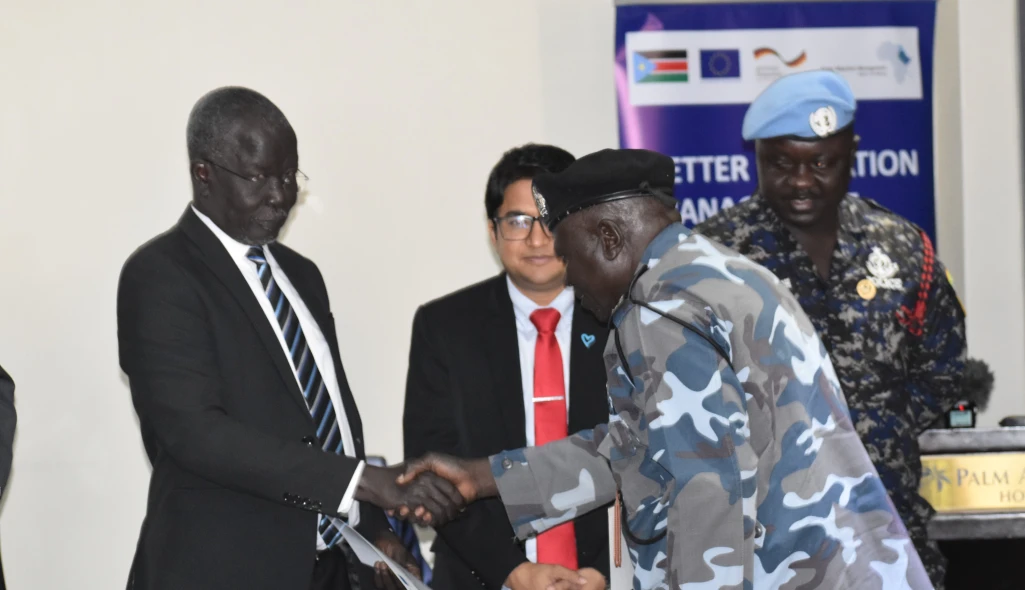
Combating human trafficking is one of the most urgent and complex challenges facing South Sudan law enforcement agencies.
The manual, designed for National Police Officers and other law enforcement professionals, serves as a comprehensive guide to identifying, preventing, investigating, and prosecuting human trafficking cases.
"This manual will enhance our ability to protect vulnerable individuals from exploitation and bring perpetrators to justice,” it reads.
Human trafficking, which often involves forced labor, sexual exploitation, and involuntary servitude, continues to devastate lives not only in South Sudan but also across the globe.
The manual emphasizes the importance of a survivor-centered approach, recognizing the dignity and rights of victims.
It also stresses the need for collaboration among law enforcement agencies and non-governmental organizations.
"Effective responses require strong cooperation, not only within the police force but also with communities and local organizations working on the ground,” it states.
The primary goal of the manual is to strengthen the capacity of South Sudan’s law enforcement to detect and respond to trafficking cases.
It encourages interagency collaboration, aiming to build a more informed and coordinated effort to address the complex social, cultural, and psychological aspects of trafficking.
The new training resource is expected to improve law enforcement's understanding of human trafficking and foster a more cooperative approach to eradicating this crime.
By focusing on the safety and rights of victims, South Sudan aims to create a safer, more just society for all.
On Monday, the minister of Interior, Angelina Teny, highlighted the growing role of South Sudan as a conduit for human trafficking.
“This is an internationally organized criminal activity that affects women in a very serious manner. And South Sudan, we now realize, is a conduit for trafficking in persons,” Teny stated.
“Girls are trafficked along with young men, and you find they are all young people. They are trafficked, brought to South Sudan to try and make their way northwards.
“It used to be Sudan; now it's Chad as well. To find their way to Libya, Morocco, and Algeria, where they go and meet the most heinous criminal activities, they are subjected to grave violations. That is, if they make it and they do not end up as a corpse in the desert."
Teny’s remarks shed light on a lesser-known aspect of GBV known as trafficking and smuggling.
She stated that discussions around GBV often focus on issues such as rape and domestic violence, but the scope is much broader and includes highly organized and severe forms of abuse.
“So, I'm raising this because when we talk about GBV, people always think it is very limited. We're thinking of rape, we're thinking of domestic violence, physical violence, and so on. We sometimes are not aware of this highly sophisticated, internationally organized, and violence against women and boys,” she added.